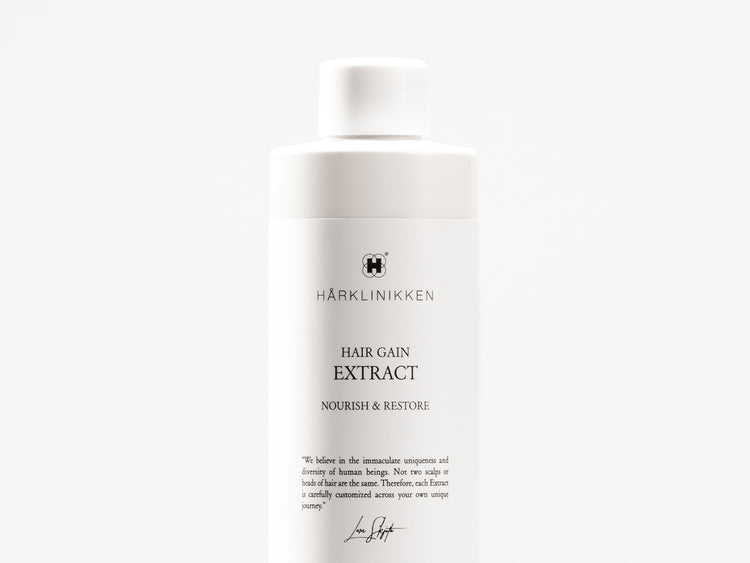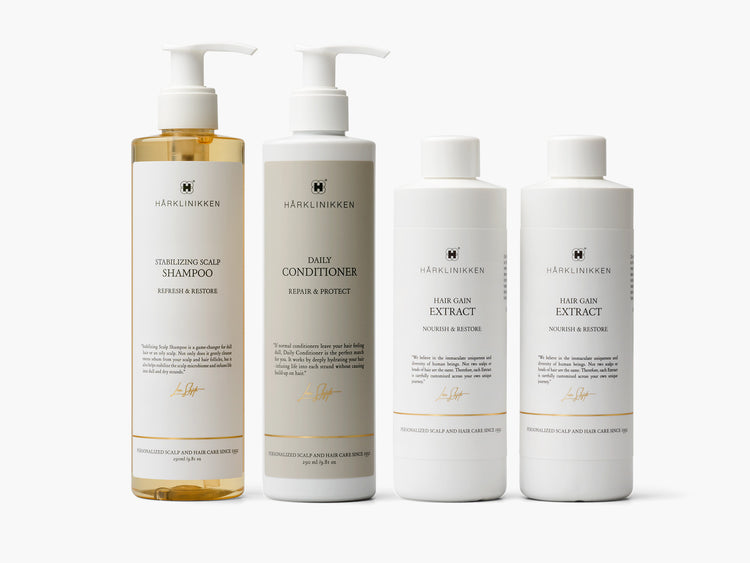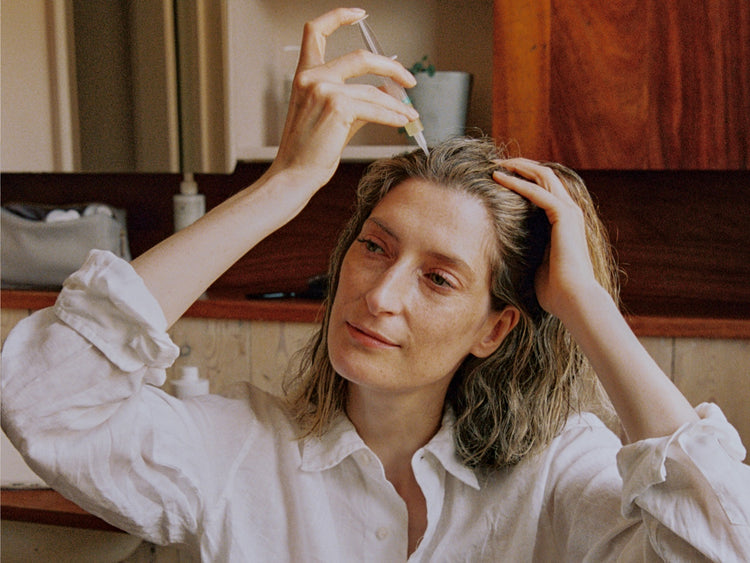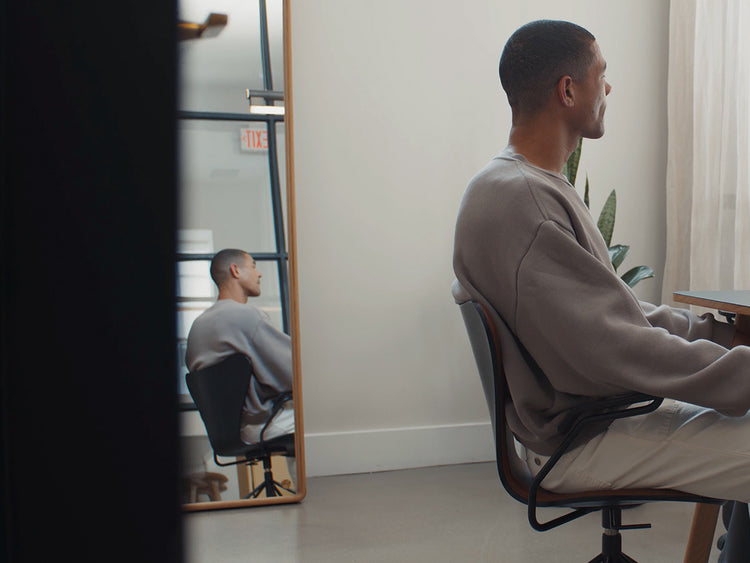Along with various other body shifts that occur during perimenopause and menopause, many people experience changes to their scalp health and hair quality. This phase of life isn’t all doom and gloom – in fact, there are plenty of things to celebrate – and many menopausal hair changes are more than manageable with the right approach.
What occurs during perimenopause and menopause?
During perimenopause, hormones – specifically oestrogen and progesterone – fluctuate and ultimately change permanently. This leads to the irregular menstrual cycles. When a person hasn’t had their period for 12 consecutive months, they are typically identified as having entered menopause. These hormone fluctuations can have various effects – one being changes to your scalp and hair.
Common menopausal scalp and hair changes
While not all hair and scalp shifts are the same during perimenopause and menopause, these are some typical changes:
Dry Hair
Reduced oestrogen levels can lead to a decrease in sebum production, resulting in dry hair. Many people notice this lack of moisture manifesting as increased frizz, dull strands, and more breakage.
Scalp Imbalances
Hormonal fluctuations can disrupt the scalp’s microbiome, leading to dryness or oiliness. These kinds of imbalances may cause dandruff, scalp irritation and itchiness.
Hair Thinning
Oestrogen and progesterone levels decreasing can lead to hair follicle miniaturisation – a process where the hair follicle progressively shrinks and produces strands of hair that are thinner, weaker, more prone to breakage. Many people first notice hair loss and thinning as a widening part, thinner ponytail, more hair in their brush or shower drain, and an overall reduction in volume.
Hair Texture Changes
Hormone changes often alter the hair’s structure, leading to (sometimes permanent) texture differences. This often starts gradually before perimenopause and increases through menopause, often leading to drier, frizzier and duller hair.
Seven scalp and hair tips for menopause
Whether you're perimenopausal, menopausal, post-menopausal or otherwise, our advice for your scalp and hair care remains relatively similar. Here are some simple, everyday tips:
1. Care for Your Scalp
Your scalp needs just as much attention as your hair, so be sure to cleanse frequently and thoroughly with our gentle but effective shampoos, as they are an integral part of the treatment. Our customised Hair Gain Extract is the cornerstone of the Harklinikken Method. Containing unique proprietary constituents derived from plant-based ingredients, it’s uniquely formulated to each client’s individual needs to create optimal scalp health to maximise hair growth.
2. Hydrate Hair
All hair types need hydration. Our conditioners add hydration to the hair strand without simply coating it with silicone or similar ingredients. We also recommend using our leave-in Hair Hydrating Crème after cleansing and conditioning. Additionally, you can boost your hair’s moisture with our Hair Mask once or twice a week.
3. Limit Hot Styling Tools
High temperatures from flat irons, curling irons and blow dryers can strip the scalp and hair of natural oils, leading to dryness and damage. The less they’re relied upon, the better – but if you are using them, be sure to use a heat protectant like the Hair Hydrating Crème. Read our full guide to hot styling tools here.
4. Embrace Your Natural Texture
Even if your hair has become coarser or frizzier, you can enhance your natural texture by treating it with our conditioners, treatments and styling products. If you want more defined curls, coils or waves, consider using our Styling Gel or Styling Wax, while our hydrating products are formulated to help improve moisture retention and reduce frizz.
5. Reduce Stress Levels
All our body functions, including the hair growth cycle, are affected by stress. Science has proven that taking 20 to 30 minutes every day to focus on reducing your stress levels can make a big difference. If you are able, take a walk, stretch, meditate or read before you go to sleep.
6. Eat a Balanced Diet
Just like the rest of the body, the scalp and hair follicles need adequate nutrition to function at their best. Make sure to eat mostly unprocessed, fresh, nutrient-dense food to support your hair growth cycle, scalp health and overall wellbeing.
7. Consider a Supplement
A decade in development, our Hair Supplement comprises a meticulous blend of bioavailable ingredients at their most efficacious levels. Each capsule contains components chosen specifically to help boost growth, strength and quality of hair strands, reduce stress and improve sleep, aid gut function and nutrient absorption, and support scalp barrier and follicle health.

Unsure where to start?
We only accept candidates who we believe we can help, which is why our online Hair Assessment is the best place to start. Based on your results, you will either qualify for immediate treatment or we will organise a consultation.




